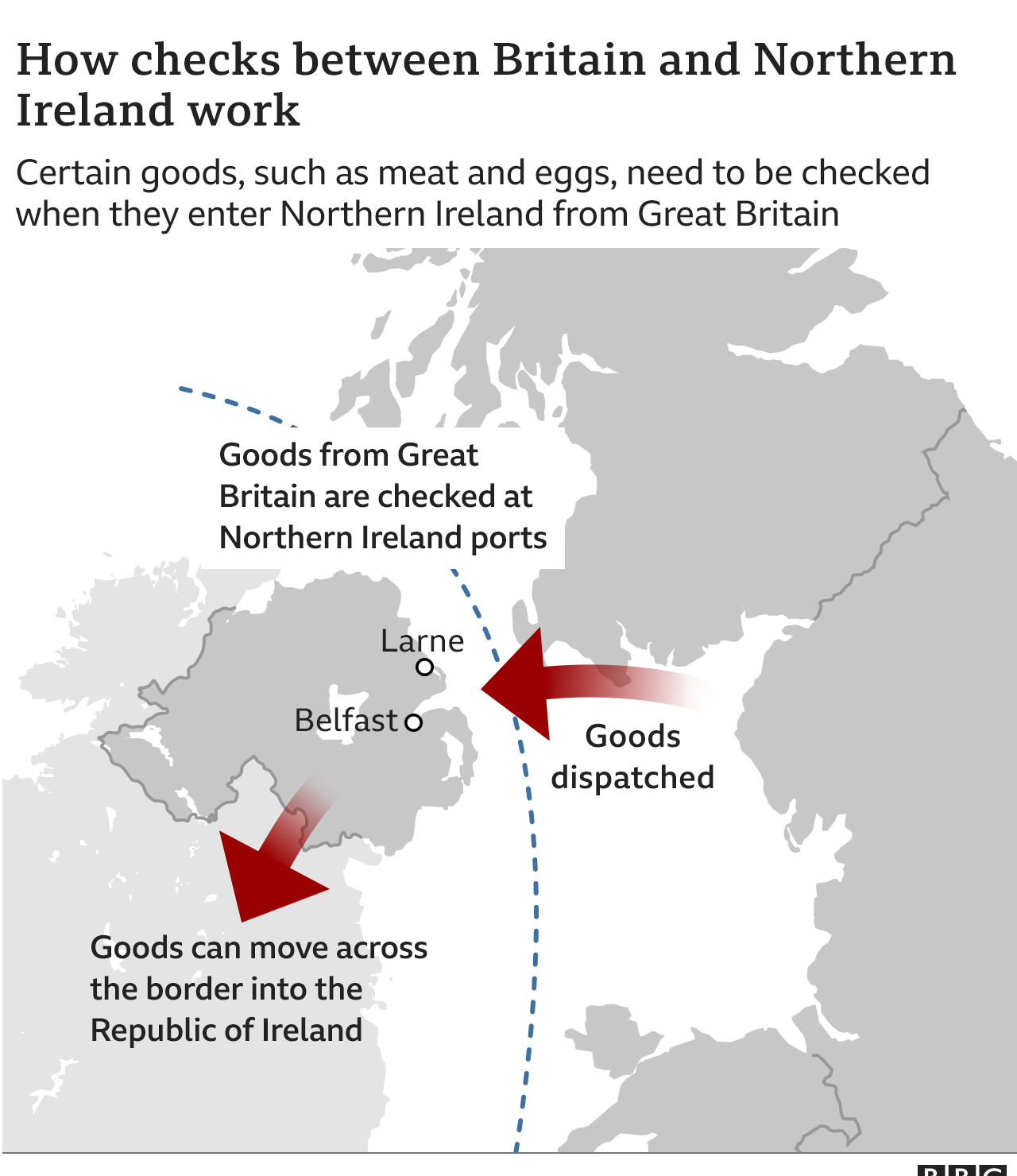MPs will attempt to make changes to the government's controversial Northern Ireland Protocol Bill later.
It is starting its committee stage in the House of Commons, meaning amendments can be voted on.
Most parties in Northern Ireland oppose the bill but most candidates vying to become the next Conservative leader say they remain committed to passing it.
The protocol is part of the 2019 Brexit deal and keeps Northern Ireland in the EU's single market for goods, preventing a hard border with the Republic of Ireland.
But it means checks on some items which come into Northern Ireland from other parts of the UK, creating a trade border in the Irish Sea.
Prime Minister Boris Johnson said in June that he believed legislation on the deal could be passed by the end of the year.
The EU opposes the move, saying it breaches international law.
The Social Democratic and Labour Party (SDLP), Alliance and Labour want to water it down and others are seeking to compel the government to publish the legal advice.
Those bids are unlikely to be successful but could pave the way for tougher opposition once the legislation moves to the House of Lords in the autumn.
Meanwhile, the Democratic Unionist Party (DUP) insists that its priority remains ensuring any new prime minister does not backtrack from the bill.
The government's plans, published earlier in June, were met with a fierce backlash from the EU, which launched legal action against the UK government over the legislation.
Mr Šefčovič has also indicated that further measures may follow if the bill proceeds, including a trade war between the UK and EU.
What is in the Northern Ireland Protocol bill?
The UK government published plans for the bill earlier this month. At the centre of the proposal is the concept of green lanes and red lanes for trade.
This would mean:
- Goods coming from Great Britain into Northern Ireland and which are staying would use the green lane. This means there would be no checks and paperwork would be minimal
- GB goods moving through NI into Ireland or the wider European Union would use the red lane and continue to be checked at NI ports
London also wants any trade disputes resolved by "independent arbitration" and not by the European Court of Justice, and for Northern Ireland to benefit from the same tax breaks as elsewhere in the UK.
The protocol is opposed by unionists in Northern Ireland, who argue it undermines Northern Ireland's place in the UK.
Sinn Féin won the most seats in May's assembly election but the DUP, which came second, is refusing to re-enter a power-sharing executive until its concerns about the protocol are addressed.
A majority of members of the assembly, including Sinn Féin, Alliance and the SDLP, say the protocol is necessary to mitigate the effects of Brexit in Northern Ireland.
On Wednesday, DUP MP Gregory Campbell said he did not expect the protocol legislation to change significantly through committee amendments.
He told BBC News NI's Good Morning Ulster the issue of the protocol needed to be resolved by the next prime minister, but he declined to suggest who the party's preferred candidate would be.


